MercoPress. South Atlantic News Agency
Tag: Air pollution
-
Wednesday, October 14th 2020 - 08:31 UTC
Pioneer ozone Mexican scientist and Nobel Prize dies

Mario Molina, the winner of the Nobel Prize in chemistry in 1995 and the only Mexican scientist to be honored with a Nobel, died last week in his native Mexico City. He was 77 years old.
-
Wednesday, March 25th 2020 - 08:54 UTC
Some of the things Covid 19 can be expected to change

By Gwynne Dyer – They teach you in journalism school never to use the phrase “…X has changed the world forever”. Or at least they should. Covid-19 is certainly not going to change the world forever, but it is going to change quite a few things, in some cases for a long time. Here’s eight of them, in no particular order.
-
Wednesday, February 5th 2020 - 06:53 UTC
UK to ban sale of petrol, diesel and hybrid cars from 2035

Britain will ban the sale of new petrol, diesel and hybrid cars from 2035, five years earlier than planned, in an attempt to reduce air pollution that could herald the end of over a century of reliance on the internal combustion engine.
-
Saturday, May 18th 2019 - 07:59 UTC
Smog disaster in Mexico City, all residents “smoking” half a pack of cigarettes a day
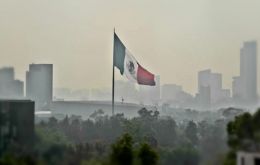
Scientists say breathing the heavily polluted air in Mexico City these days is like smoking somewhere between a quarter-and a half-pack of cigarettes a day.
-
Saturday, March 16th 2019 - 09:15 UTC
The climate strikers should inspire us all to act at the next UN summit

By Antonio Guterres (*) Without ambitious action, the Paris agreement is meaningless. So I’m bringing world leaders together to build the future we need. Tens of thousands of young people took to the streets on Friday with a clear message to world leaders: act now to save our planet and our future from the climate emergency.
-
Wednesday, January 16th 2019 - 08:54 UTC
Air pollution, the greatest environmental risks to health says WHO
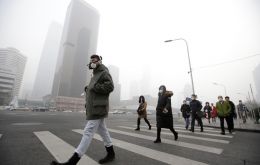
Nine out of ten people breathe polluted air every day. In 2019, air pollution is considered by the World Health Organization, WHO, as the greatest environmental risk to health.
-
Tuesday, November 6th 2018 - 20:21 UTC
World Medical Association supports physicians involvement in combing air pollution
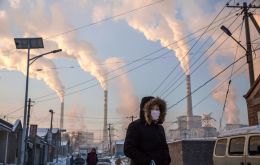
The World Medical Association has echoed a high-powered call for health professionals to be more involved in the management of childhood exposure to air pollution. The call has come at the first World Health Organization conference on air pollution being held in Geneva.
-
Tuesday, October 30th 2018 - 08:51 UTC
More than 90% of the world’s children breathe toxic air every day
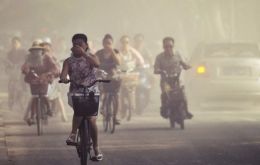
Every day around 93% of the world’s children under the age of 15 years (1.8 billion children) breathe air that is so polluted it puts their health and development at serious risk. Tragically, many of them die: WHO estimates that in 2016, 600,000 children died from acute lower respiratory infections caused by polluted air.
-
Saturday, September 29th 2018 - 09:18 UTC
World Heart Day will emphasize awareness on air pollution risk

This year the World Heart Federation (WHF) is raising awareness of an increasingly important CVD risk factor: air pollution. World Heart Day takes place this Saturday. The latest scientific evidence by Nature warns that exposure to nitrogen dioxide and fine particulate matter air pollution is clearly linked to CVD mortality. Poor air quality is also ranked as the 4th cause of Disability-Adjusted Life Year (DALY) – one lost year of ‘healthy life’ – according to latest Global Burden of Disease study .
-
Monday, May 7th 2018 - 08:20 UTC
WHO claims 9 out of 10 people breathe air containing high levels of pollutants
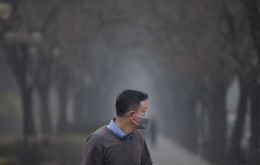
Air pollution levels remain dangerously high in many parts of the world. New data from the World Health Organization (WHO) shows that 9 out of 10 people breathe air containing high levels of pollutants. Updated estimations reveal an alarming death toll of 7 million people every year caused by ambient (outdoor) and household air pollution.
